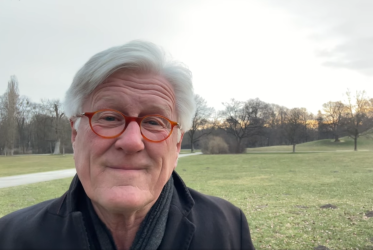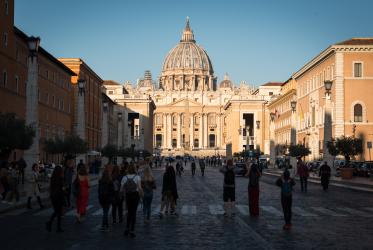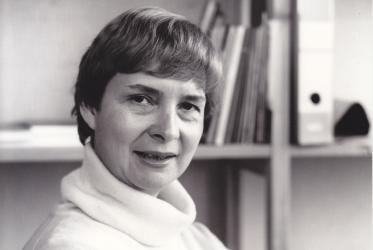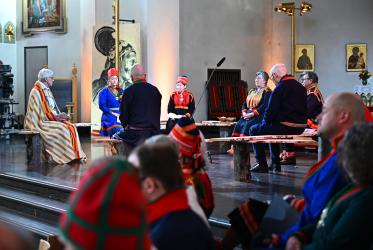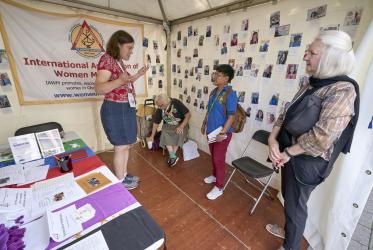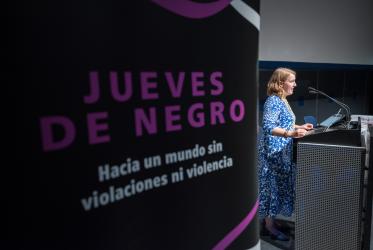Displaying 1 - 20 of 482
WCC president from Europe reflects at Christian Aid assembly
21 November 2023
WCC prayer commemorates Genocide Remembrance Day
24 April 2023
WCC moderator shares International Women’s Day message
08 March 2023
Church of Sweden apologizes to Sámi people, this time in Sápmi
27 October 2022
Are you a #ThursdaysinBlack trailblazer?
08 September 2022
Promoting human dignity through art
06 September 2022
Indigenous women struggle for identity in Asia and beyond
05 September 2022
#ThursdaysinBlack: Stories flow from the Waterfall Tapestry
01 September 2022

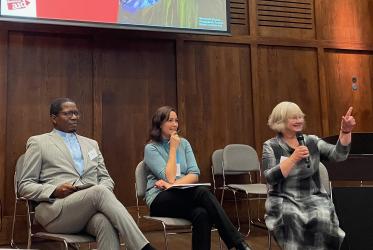
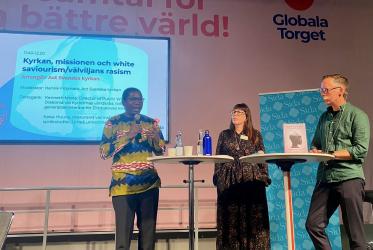
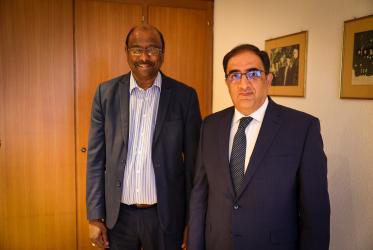
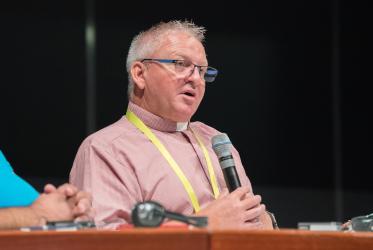

![Image[1].jpeg](/sites/default/files/styles/teaser/public/photoshelterCopy/Image%5B1%5D.jpeg?h=44590859&itok=LMAXVRC6)



